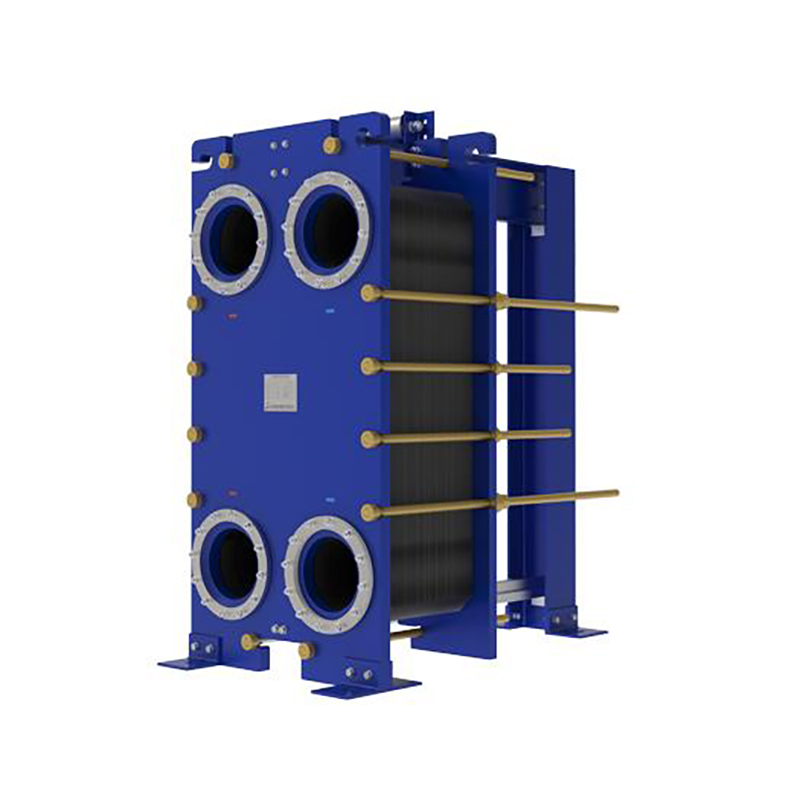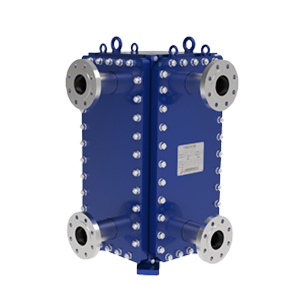Frame plate heat exchanger picks for top efficiency
Compare top frame plate heat exchanger models for ...
More
The principle of an oil and gas heat exchanger revolves around efficient thermal energy transfer between two process streams while maintaining strict separation to prevent cross-contamination. These units are critical in midstream and downstream operations, facilitating the cooling of hydrocarbon products after distillation, stabilizing gas streams by removing excess heat, and preheating crude oil entering distillation columns to reduce viscosity and enhance flow. In gas processing plants, exchangers condense water vapor and heavy hydrocarbons from natural gas, ensuring pipeline quality standards are met. Refineries deploy shell-and-tube, plate-and-frame, or air-cooled exchangers to manage temperatures during catalytic cracking, hydrocracking, and reforming processes. For instance, in a typical shell-and-tube design, hot oil flows through tubes while cooler gas or liquid circulates around the shell, achieving temperature stabilization. Advanced materials like stainless steel or titanium alloys combat corrosion from sour gases containing H₂S. Operational data from industry reports, such as those by API (American Petroleum Institute), indicate that properly designed exchangers can achieve thermal efficiencies of 85-90%, directly reducing fuel consumption in fired heaters by up to 15%. Modern units integrate predictive maintenance sensors monitoring fouling factors, pressure drops, and temperature differentials to optimize performance. In LNG facilities, cryogenic exchangers operate at temperatures below -160°C to liquefy natural gas, utilizing aluminum plate-fin designs for compactness. The hydrodynamic design ensures minimal pressure loss, critical for compressor energy savings. Research from the Gas Technology Institute highlights that optimized exchanger networks in a refinery can slash energy use by 20-30%, underscoring their role in operational cost reduction and emissions compliance. Fouling mitigation strategies, including periodic chemical cleaning or automated brush systems, maintain efficiency, as even a 1mm deposit can increase energy demand by 10%. These principles align with ASME Section VIII standards for pressure vessel safety and TEMA (Tubular Exchanger Manufacturers Association) guidelines for mechanical robustness.
Select the most popular foreign trade service products to meet your diverse needs
Learn more about the dynamics and professional knowledge of the foreign trade industry

Compare top frame plate heat exchanger models for ...
More
Plate heat exchanger gaskets perform 5 key roles: ...
More
A gasket in heat exchanger seals surfaces, blocks ...
More
You can see clear differences between welded block...
More
Shanghai Heat Transfer stands out with its ISO9001...
More
API 662 defines standards for plate heat exchanger...
MoreSelect the most popular foreign trade service products to meet your diverse needs
Explore more content related to foreign trade services

User Comments
Service Experience Sharing from Real Customers
Michael Reynolds
Maintenance SupervisorThis heat exchanger has drastically improved our cooling system's efficiency. The build quality is exceptional and it has handled our harsh operating conditions without any issues for over a year. A fantastic investment for any oil and gas operation.
Sarah Chen
Process EngineerOutstanding performance and reliability. We installed this exchanger in our gas processing plant, and it has consistently delivered optimal heat transfer, contributing to significant energy savings. The manufacturer's support was also excellent.
David Rodriguez
Facilities ManagerA very robust and well-designed piece of equipment. It integrates seamlessly into our upstream production platform. Took one star off for a slightly longer delivery time than initially quoted, but the product itself is top-tier.
James Wilson
Chief MechanicAs someone who maintains this equipment daily, I appreciate the thoughtful design. Maintenance and cleaning are straightforward compared to other models we've used. It's built to last and performs flawlessly under high pressure.